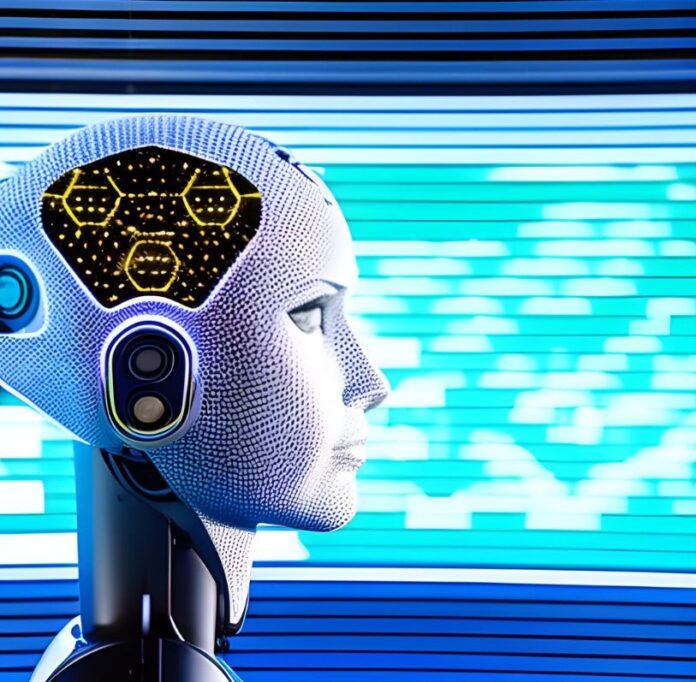Artificial Intelligence (AI) has emerged as a transformative technology that is reshaping various industries and revolutionizing the way we live and work. From voice assistants and self-driving cars to personalized recommendations and advanced data analytics, AI has become an integral part of our daily lives. In this article, we will explore the latest advancements in AI technology and discuss their potential implications on industries and society as a whole.
- Advancements in AI Technology:
a. Machine Learning and Deep Learning: Machine learning algorithms have become more sophisticated, enabling AI systems to learn and improve from vast amounts of data. Deep learning techniques, such as neural networks, have achieved remarkable breakthroughs in image recognition, natural language processing, and speech synthesis.
b. Natural Language Processing (NLP): NLP has made significant strides, allowing AI systems to understand and generate human language more accurately. This development has led to the rise of virtual assistants, chatbots, and language translation tools that enhance communication and streamline various processes.
c. Computer Vision: AI-powered computer vision technologies have advanced rapidly, enabling machines to interpret and analyze visual information. This has applications in autonomous vehicles, facial recognition systems, quality control in manufacturing, and healthcare diagnostics.
d. Reinforcement Learning: Reinforcement learning algorithms enable AI systems to learn by trial and error, interacting with their environments. This approach has led to breakthroughs in robotics, gaming, and optimizing complex decision-making processes.
- Impact on Industries:
a. Healthcare: AI has the potential to revolutionize healthcare by enabling more accurate diagnostics, personalized treatment plans, and efficient healthcare management. Machine learning algorithms can analyze medical data, identify patterns, and predict diseases, improving patient outcomes and reducing healthcare costs.
b. Finance: AI algorithms can process vast amounts of financial data in real-time, enabling more accurate risk assessment, fraud detection, and personalized investment advice. Chatbots and virtual assistants can provide customer support and streamline financial services, enhancing customer experience.
c. Manufacturing: AI-powered automation and robotics are transforming the manufacturing industry. Intelligent robots can perform complex tasks with precision and efficiency, leading to increased productivity and reduced costs. AI also enables predictive maintenance, minimizing equipment downtime.
d. Transportation: Self-driving cars and autonomous vehicles are poised to revolutionize transportation. AI algorithms combined with sensor technologies can enhance road safety, reduce traffic congestion, and improve overall efficiency in logistics and supply chain management.
- Societal Implications:
a. Job Displacement and Transformation: As AI technology advances, there is concern about job displacement. While certain repetitive and mundane tasks may be automated, new jobs will also be created to develop, manage, and maintain AI systems. Upskilling and retraining programs will be crucial to ensure a smooth transition for the workforce.
b. Ethical Considerations: AI raises ethical questions around privacy, bias, and accountability. Transparent and responsible AI development practices are necessary to address these concerns. Ensuring fairness, interpretability, and data privacy should be prioritized to build trust in AI systems.
c. Enhanced Decision-making and Creativity: AI can augment human decision-making by providing valuable insights and data-driven recommendations. It can also assist in creative endeavors, such as art, music, and writing, opening new possibilities for human expression and innovation.
d. Impact on Education: AI technology has the potential to personalize and enhance education by providing adaptive learning experiences tailored to individual students. Intelligent tutoring systems, virtual reality simulations, and automated assessments can revolutionize the way we learn.
The future of artificial intelligence holds immense potential for advancements that will reshape various industries and society as a whole. With continuous developments in AI technology, we can expect improved healthcare outcomes, optimized industries, and enhanced decision-making processes. However, it is crucial to address the ethical considerations and ensure responsible deployment of AI to maximize its benefits while mitigating potential risks. By embracing AI and preparing for the changes it brings, we can harness its transformative power for a brighter and more inclusive future.





















